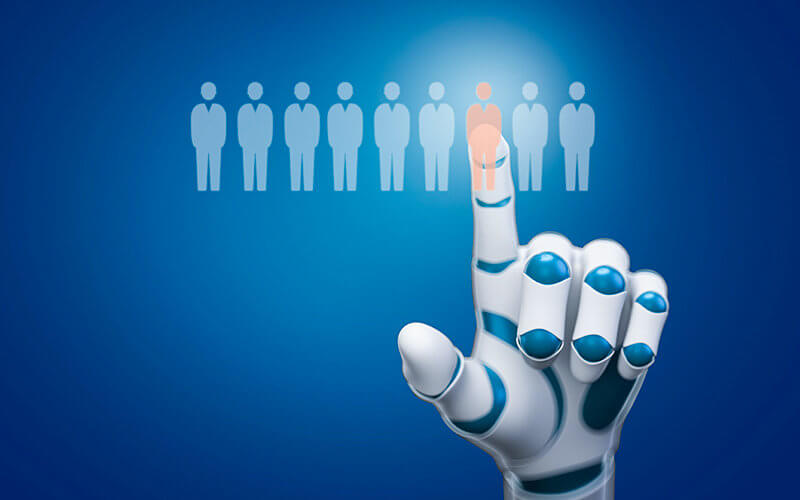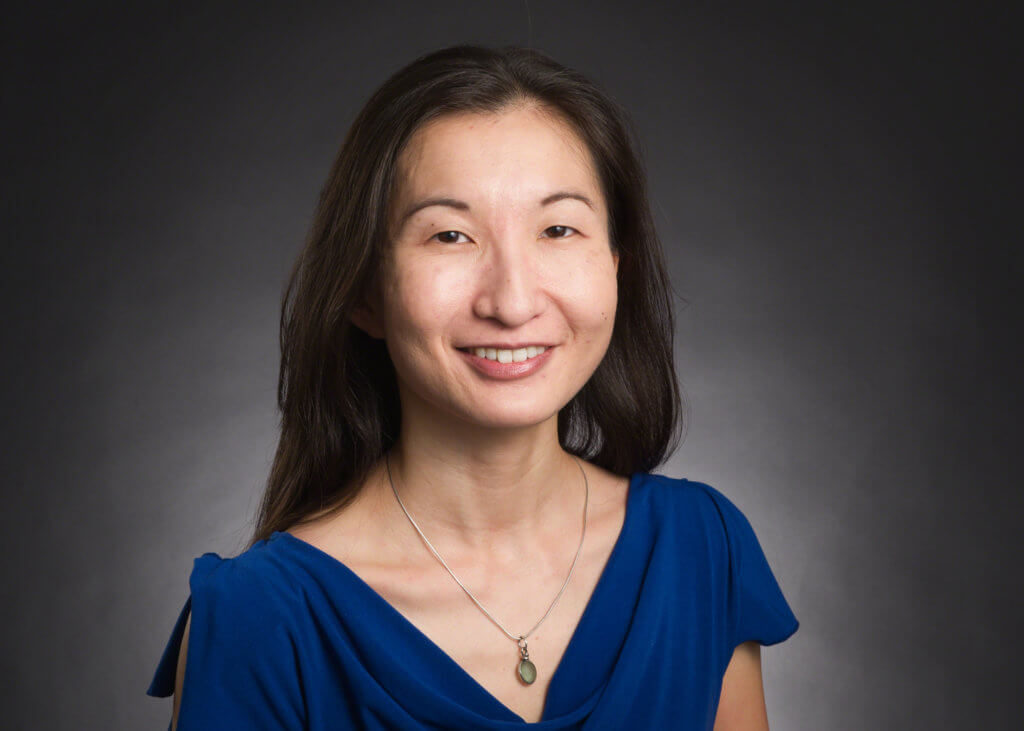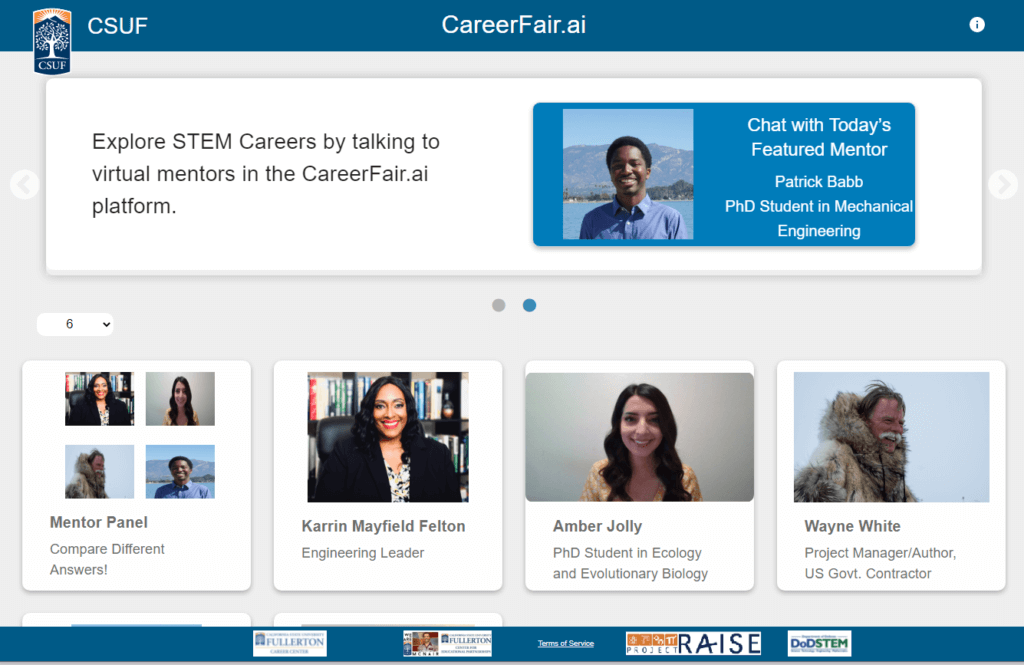
Researchers at Cal State Fullerton and the University of Southern California are studying if and how artificial intelligence can help guide and mentor more college students from underrepresented communities.
The project, “CareerFair.ai: Increasing Connections to Fast-Growing STEM Careers,” aims to increase interest and engagement in science, technology, engineering and mathematics, or STEM, fields. CareerFair.ai centers on an online platform that can answer students’ academic and career questions using AI-based virtual agents.
Virtual agents use prerecorded videos from graduate students and professionals who are real-life mentors in STEM and STEM-adjacent fields. These mentors also belong to such underrepresented groups as first-generation college students, women and historically marginalized racial and ethnic groups.

“Our AI-based technology helps simulate a real-life conversation, as if students are talking to these professionals in real time,” said Cal State Fullerton assistant professor of psychology Yuko Okado, one of the project’s principal investigators.
Launched in 2020, the $2.6 million project is backed by a three-year grant from the Department of Defense’s National Defense Education Program. Its principal investigators also include USC Institute for Creative Technologies’ Director for Learning Science Research Benjamin Nye and Chief Technology Officer William Swartout.
Improving Access to STEM Mentors
Research suggests that mentoring and outreach can help increase diversity, participation and persistence in STEM fields, but individual mentors can only reach so many students in their available time.
“This is the gap we’re aiming to address with this project,” Okado said. “With the help of A.I.-based tools, we can deliver each mentor’s advice in a personalized way to many more students.”

CareerFair.ai is meant to increase students’ access to “high-quality mentoring.” Okado said first-generation and nontraditional students can find it especially difficult or intimidating to schedule time to meet with a real-life mentor.
“A lot of our students are working or taking care of family members,” Okado explained.
Okado hopes it encourages students to keep pursuing STEM careers, consider a STEM-adjacent career, or think about a STEM minor. The platform can also help students learn new ways to connect with mentors, she said.
Relatable Stories and Mentors
The goal of CareerFair.ai is to host a growing community of mentors that students can access for free at any time to explore their career options.
“We have been recording a phenomenal set of volunteer mentors with lots of engaging stories and insightful advice,” Okado says. “We are grateful for their contributions and look forward to working with even more mentors so students can learn about different career paths and perspectives.”
Currently, the pilot site features five virtual mentors from different backgrounds. The project is also working with professional organizations and other minority-serving institutions, especially those serving Latinx and African American communities, to grow its mentor network.
Using “MentorStudio,” a new web platform created for the CareerFair.ai project, mentors can spend 12 to 15 hours answering approximately 260 sample questions. Okado said the platform provides a space for mentors to share personal stories and advice for students.
“Students often look for mentors of similar cultural or personal backgrounds,” Okado said. “How relatable that mentor is to them personally can go a really long way.
“It’s important that students know someone has paved the way and they’re not going into a particular area alone.”
Analyzing Students’ Responses
To ensure the platform is meeting students’ needs and recruiting mentors in high-demand fields, Okado’s team surveyed 344 CSUF students on their STEM interests in the project’s first year.
Preliminary data on students’ user experience showed that a majority of the users, or 89.0%, “agree” or “completely agree” that using CareerFair.ai is a good idea.
Similarly, 90.4% of students said they “agree” or “completely agree” the CareerFair.ai platform was clear and easy to understand.
On a five-point rating scale that ranged from “Not Helpful at All” to “Very Helpful,” over 63% of the students rated each mentor on the pilot platform as “Helpful” to “Very Helpful.”
In Fall 2021, the team surveyed additional 722 CSUF students. Okado said her team also will begin a larger study with 300 CSUF students during spring 2022 to see how well the CareerFair.ai platform delivers career guidance and information. Then, the team will seek outside feedback on the platform during fall 2022 and spring 2023.
Learn more about the CareerFair.ai project on Twitter and Instagram.